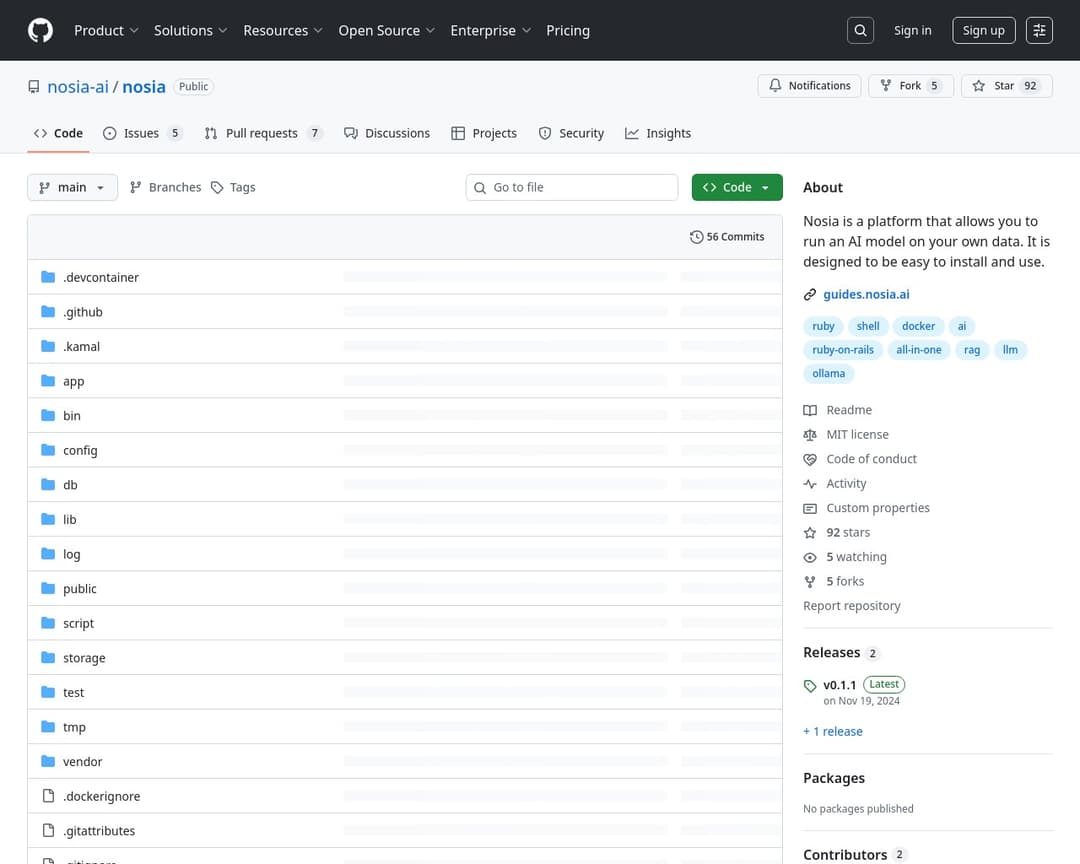Competitors
12
🚀
Discover 50+ More Competitors
This is just the tip of the iceberg. Unlock comprehensive insights into your competitive landscape.
Unlock Full ReportNosia is an open-source platform designed to enable users to run AI models on their own data, prioritizing privacy and ease of use. It provides a local AI environment with simple installation and API access for chat completions.
1 of 5
Open Contributor Network
Bleeding-Edge Project Incubator
Community-Driven Funding Platform
Modular Project Portfolio
Rapid Prototype Development
1 of 10
Cognitive Engine Scaffold (Cogent)
Universal Language Model (ULM)
Decentralized Personal AI Network (Entwood)
Orbital Waste Collection System (C.O.W.S)
Industrial Hemp Materials Lab (Hemp the World)
Vision and Mission Framework
Blueprint Repository
Pitch and Funding Calls
Communication and Outreach Channels
Strategic Roadmap Publishing
Nosia is an open-source platform that allows users to run AI models on their own data, which aligns with the 'Open Contributor Network' feature. The core functionality of running AI models on user data also loosely relates to the 'Cognitive Engine Scaffold' as it provides an infrastructure for AI. However, it doesn't explicitly mention incubating 'bleeding-edge' projects, a community-driven funding platform, or a modular project portfolio in the same way Mad Bastard Labs does. The focus is more on providing a tool for AI model deployment rather than a broader R&D platform.

I've been using Alternative A for 6 months now and it's been fantastic. The pricing is much better and the features are actually more robust than what [Product] offers.
It handles edge cases much better and the API is actually documented properly.
Check it out at our site.
Honestly, after trying both, Competitor B wins hands down. Better customer support, cleaner interface, and they don't nickel and dime you for every feature.